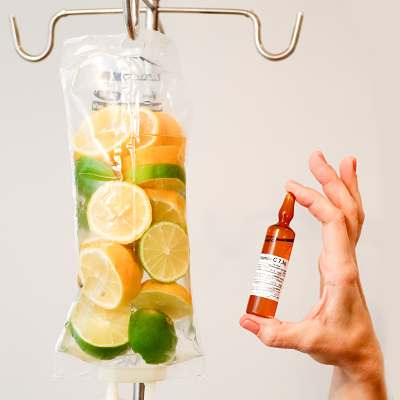
Intravenous (IV) drips are growingly popular for a variety of health and fitness purposes, including treating certain medical disorders and maintaining hydration. Moreover, one often asked question is, “Shall I Take Drip Without Having Food?” Hence, this blog article will discuss the various hazards and advantages.
What Is an IV Drip?
Before you investigate whether having an IV drip without eating is okay, you must know what one is with an IV drip, nutrition, medications, or water right into your system via a vein. Usually, they are employed in medical environments to rehydrate patients, administer medications, or provide vital nutrients. It is effective when patients may not be able to consume them. Moreover, this approach allows fast absorption. IV drips have also grown in popularity in the medical field.
Shall I Take Drip Without Having A Food?
Shall I Take Drip Without Having A Food? Hence, depending on the kind of drip and their health, an IV drip Therapy on an empty stomach affects various persons. Not eating or drinking before an IV drip might not be a huge concern to some individuals. For some, however, it might bring discomfort or other issues.
Effects of Taking an IV Drip on an Empty Stomach
Following are the effects of taking an IV drip on an empty stomach.
Rapid Absorption of Nutrients
You consume the calories and water quickly without eating before receiving an IV drip. This might be beneficial in situations where you must rehydrate or absorb nutrients swiftly and immediately. Players that have to recuperate rapidly, for instance, might gain from quicker food absorption free from processing.
Potential for Nausea or Dizziness
Your body may not react the same way to the rapid absorption of water and nutrients without meals, which may cause you to feel ill or lightheaded. This is particularly true if the drip contains many minerals or vitamins, which sometimes would be too much for your body to manage without food to balance it.
Risk of Hypoglycemia
If you haven’t eaten, your blood sugar can be below average. Receiving an IV drip, especially one devoid of glucose may lead to hypoglycemia. Therefore, it is, dangerously low blood sugar levels. Shakiness, sweating, disorientation, and, in the worst of situations, loss of consciousness may all result from hypoglycemia.
Enhanced Detoxification
Some who advise you to fast before an IV drip claim it helps your body detox. Without eating, the body could concentrate more on eliminating pollutants, for which the nutrients and water of the drip might assist. Conversely, this concept draws more on tales than on research.
Benefits of Eating Before an IV Drip
Conversely, a little dinner before your IV drip session might benefit you in many ways:
Stabilized Blood Sugar Levels
Eating before your IV infusion helps to maintain stable blood sugar levels and reduces your chance of hypoglycemia. This is particularly crucial if your condition makes it difficult for your body to regulate blood sugar.
Reduced Risk of Nausea
Food in your stomach may act as a cushion, reducing your likelihood of feeling queasy or lightheaded during or after the drip.
Enhanced Comfort
Having food in your body overall might help to enhance the sensation. You can manage the drip better and acquire the advantages without negative consequences.
When Should You Consider Taking a Drip on an Empty Stomach?
It could be desirable or required in the following situations to fast before beginning an IV drip:
Medicinal Procedures
People preparing for surgery or another kind of medical treatment should fast forward. In these circumstances, a medical professional usually attentively monitors their condition.
Detoxification Procedures
Some detox regimens advise without eating or drinking anything before an IV drip to maximize the therapy. Conversely, you should be cautious with this.
Personal Preference
Some individuals find that having this on an empty stomach just makes them feel better.
Best Practices for Taking an IV Drip
- Consult a healthcare professional before IV drip therapy, especially if you have a medical condition or are considering fasting.
- Consume sufficient water before the IV drip session to maintain hydration and reduce illness risk.
- Choose the correct IV drip that supports your health objectives and demands.
- Monitor your body’s response during and after the IV drip, and report any pain or negative effects immediately.
Final Thoughts:
Your health, the kind of IV drip, and your comfort level will all determine what you should do. While fasting has some advantages, it also has hazards, particularly if you feel unwell or easily have low blood sugar. Always consult a doctor or nurse to be sure you are choosing the best course of action for your health and well-being before deciding whether to fast or undergo IV therapy.
Book your appointment at Royal Cosmetic Surgery-PK for the safest treatments, including this IV Drip Treatment.






